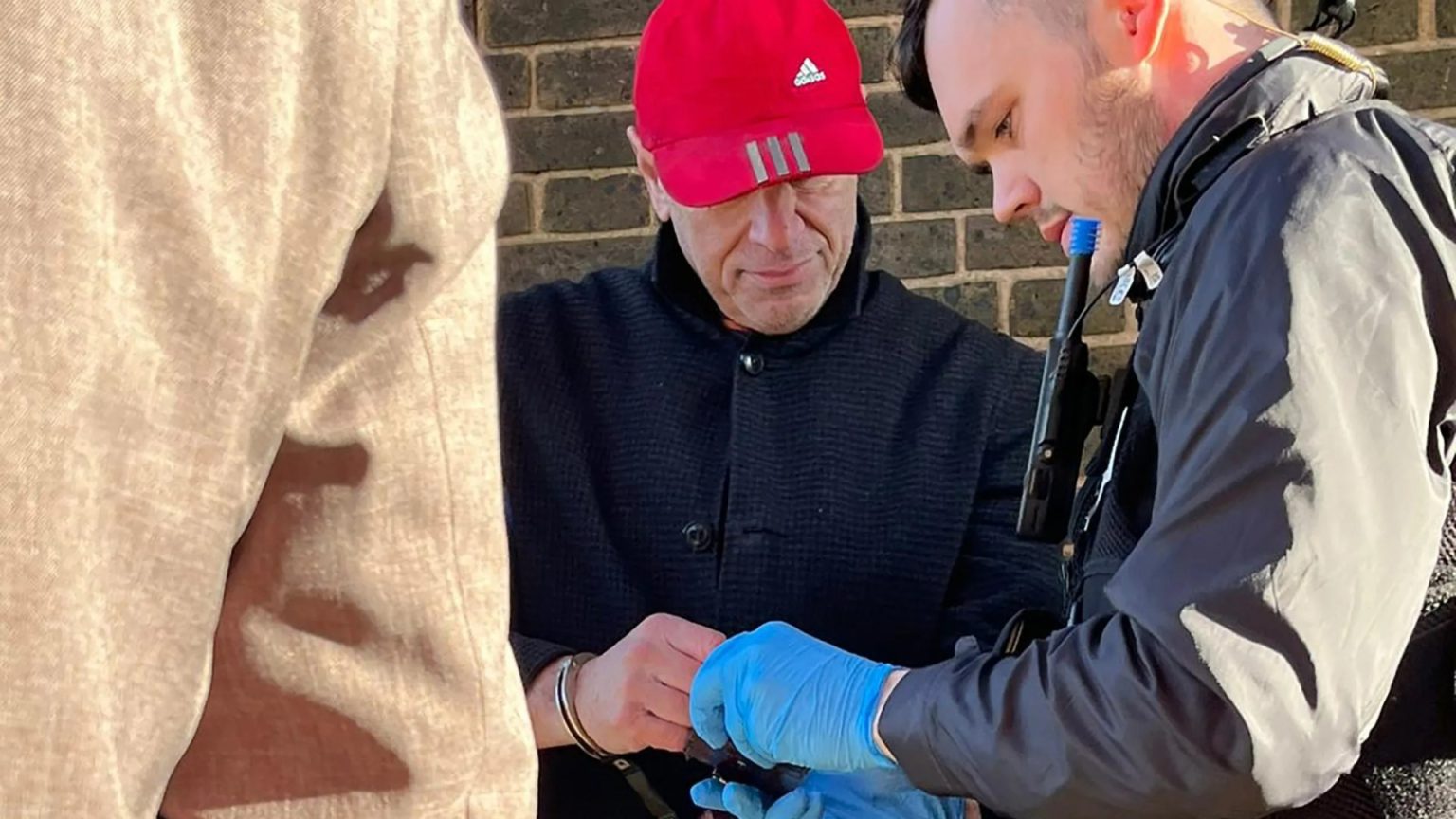The arrest of former Labour MP Ivor Caplin sent shockwaves through the UK, as the 66-year-old was apprehended on suspicion of engaging in online sexual communications with a child. The incident unfolded at Hove station, Caplin’s local stop, where he was confronted by members of the online activist group Stop Stings. The group alleges that Caplin believed he was meeting a 15-year-old boy, a persona they had adopted online to lure potential predators. The dramatic confrontation, captured on video and widely circulated on social media, shows Caplin denying the allegations while being questioned by the group’s leader. The footage shows Caplin wearing casual attire – a red Adidas cap, a navy trench coat, and ripped jeans – and appearing visibly distressed during the exchange. The video quickly gained traction online, amassing tens of thousands of views and sparking widespread public discussion.
The activist group, led by Dean Rowland, claimed to have spent months interacting with Caplin online, posing as the underage boy. They assert that Caplin sent inappropriate messages through WhatsApp and shared explicit images, all of which they presented to Sussex Police as evidence. Rowland and his team traveled from Derbyshire to confront Caplin at Hove station, ensuring the encounter would be recorded and disseminated publicly. The 30-minute live stream recorded the arrest and captured Caplin repeatedly stating that he “hadn’t done anything.” The swift action by Stop Stings resulted in Caplin’s immediate arrest by Sussex Police. The police confirmed that Caplin remained in custody and that the investigation was ongoing and active.
The incident has brought renewed scrutiny to Caplin’s past. He served as the Labour MP for Hove from 1997 to 2005, rising to the position of parliamentary under-secretary in the Ministry of Defence during Tony Blair’s premiership. He had previously established his political career in local government as a member of Hove Borough Council. However, his political trajectory took a downturn in June 2024 when he was suspended from the Labour Party amidst undisclosed serious allegations, which he vehemently denied. It is believed he was not an active member of the party at the time of his arrest.
Following the arrest, Sussex Police conducted a thorough search of Caplin’s two-bedroom flat in Hove, estimated to be worth £350,000. A tactical enforcement unit spent several hours at the property, examining Caplin’s belongings and gathering potential evidence. Neighbors expressed concern upon witnessing the police activity, describing a large number of officers and vehicles present at the scene. While the police remained tight-lipped about the specifics of the investigation, the connection to the allegations of online sexual communication with a minor caused significant unease among residents.
The Caplin case highlights the increasing role of online activist groups like Stop Stings in exposing alleged predatory behavior. Their tactics, often involving creating fake online profiles of minors to lure potential offenders, have proven controversial, raising questions about entrapment and due process. However, proponents argue that these groups provide a valuable service by bringing potential criminals to the attention of law enforcement, particularly in cases involving vulnerable children. The legal ramifications of such sting operations, and the admissibility of evidence gathered through these means, often become central points of contention in subsequent legal proceedings.
As the investigation unfolds, the evidence gathered by Stop Stings and Sussex Police will be meticulously examined. The outcome of the case will hinge on the strength of the evidence presented and whether the prosecution can prove beyond a reasonable doubt that Caplin engaged in criminal behavior. The case serves as a stark reminder of the potential dangers lurking online and the importance of safeguarding children from online predators. It also sparks broader conversations about the ethics and effectiveness of online activist groups in combating such crimes, and the delicate balance between public safety and individual rights.




